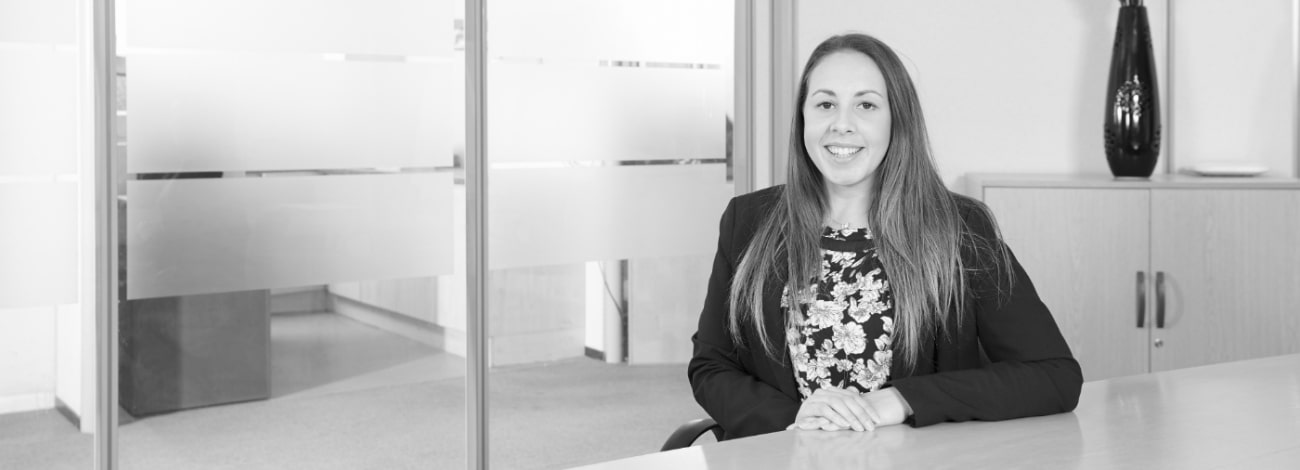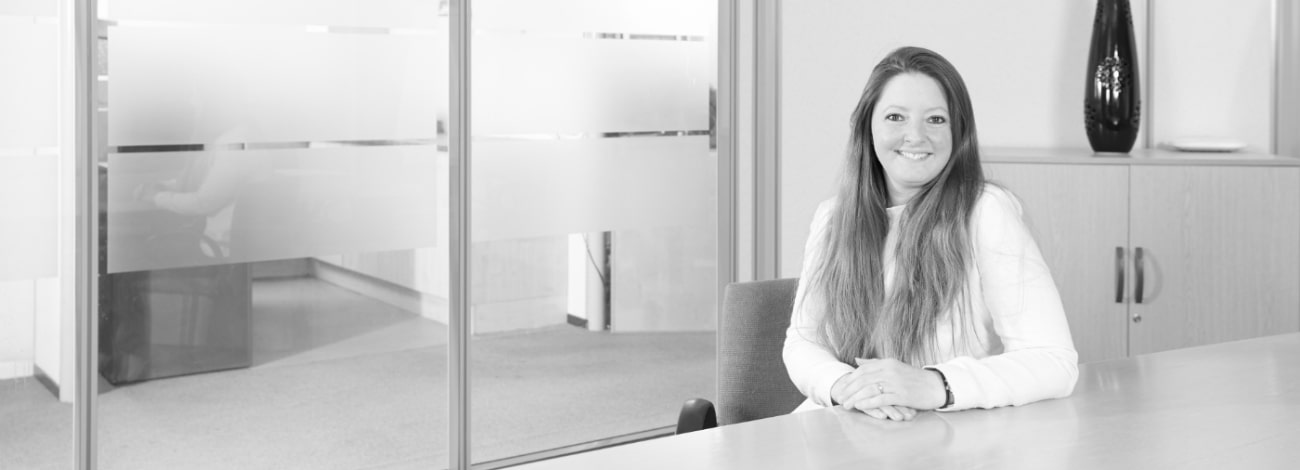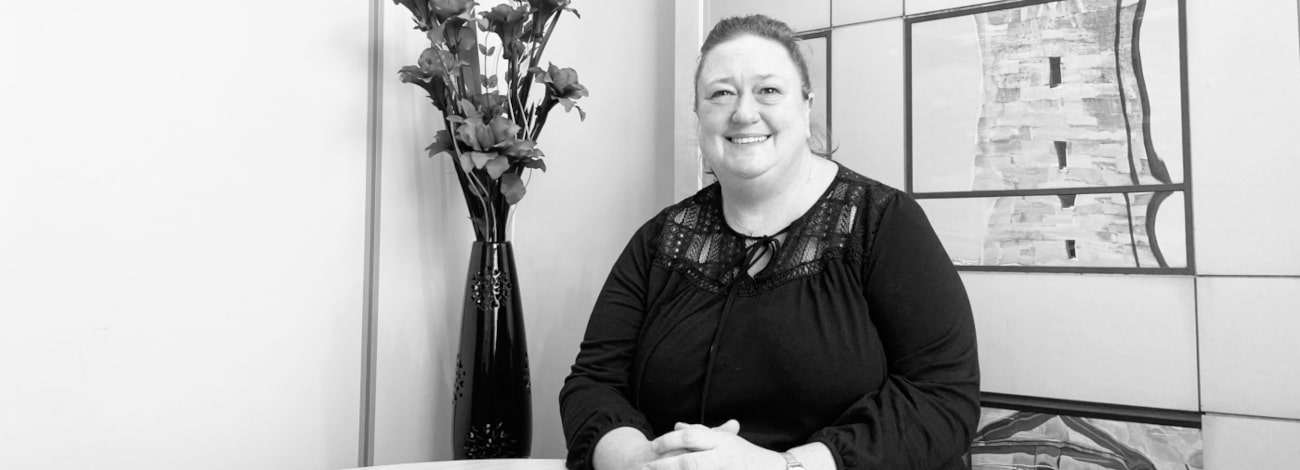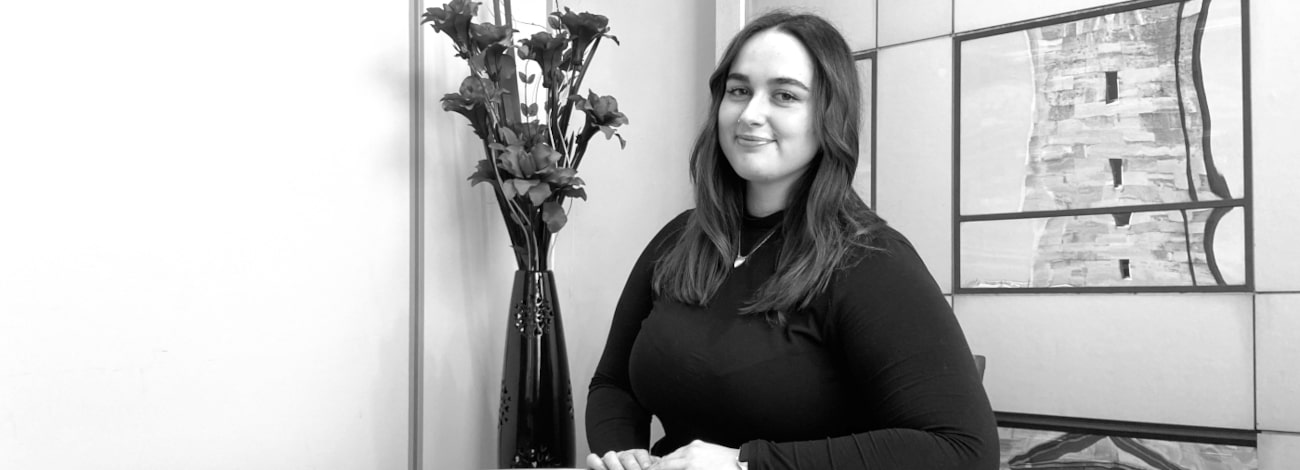Above and beyond the level I expected
Employment facts
The world of employment is constantly changing, and it can be hard to keep up with all the latest changes. Every Monday we look at facts surrounding employment law, but these can often be controversial and we love to hear your opinion... to join in the conversation go to our Facebook page.
- Figures from the Office for National Statistics show that the Gender Pay Gap figure – based on the median hourly earnings of full-time employees as tracked by the Annual Survey of Hours and Earnings (ASHE) - decreased most significantly for those in managerial positions using figures reported in April 2020. The figure has decreased from a gap of 16.3% in April 2019 to 9.9% in April 2020. (December 2020)
- Recent statistics from the Ministry of Justice have shown an 18% increase in the number of single claims lodged at the Employment Tribunal between April and June 2020. 10,318 cases were lodged with the MOJ stating that the increase has been caused by rising levels of unemployment because of “the impact of Covid-19” on the economy. (October 2020)
- CIPD are currently calling on the Government to make it a day one right for an employee to make a flexible working request. The organisation recently carried out a survey which showed that 37% of employees will be working from home on a regular basis, compared to just 18% who did so before lockdown, with 22% predicted to work from home every day compared to just 9% who did this before the pandemic hit. It is due to this response to home working that the CIPD believe that the right to make a flexible working request should commence from day one of employment. Currently, an employee must have worked for the same employer for at least 26 weeks to be eligible to make such a request. (August 2020)
- According to analyst company, Gartner, 68% of employers have introduced new wellbeing benefits during the coronavirus pandemic to support their employees. Every organisation surveyed offered an employee assistance programme, while 48% also offered counselling services and 21% provided mental health assessments. (July 2020)
- Only 1 in 10 people are looking to return to the office full time as and when they can following the gradual lifting of restrictions in the workplace. According to Bright Horizons who carried out the survey, 55% of respondents said they would choose to spend no more than three days at their office with the rest working from home, 15% wish to work remotely permanently, and 14% said they would like to work from home the majority of the time, visiting the office just once a week. (July 2020)
- According to research by communications firm, Burson Cohn & Wolfe (BCW), and consultancy PSB, 88% of employees are comfortable with having their temperature checked in order to return to work, 60% expected to return to the office by the end of August, but 45% were concerned that this would result in bringing coronavirus into their home and 31% felt that colleagues would not take proper precautions. (June 2020)
- Rewards consultancy, Willis Towers Watson, recently conducted a survey of 1,000 employers asking for their findings on productivity. They found that 22% of employers had found that coronavirus had made no impact on productivity. The same survey found that only 15% of employers found that remote working had had a material negative impact, 22% saw a small negative impact and a third were not sure. (June 2020)
- Charity, Protect, have reported 36% of their calls are now regarding furlough fraud. According to them, there are three types of fraud being committed in this way; placing an employee on furlough but asking them to work; not telling the employee they are on furlough leave with the employee finding out once they are paid; and claiming furlough for a “ghost” employee who may be someone who dismissed or “recruited” so they could claim the benefit. (June 2020)
- Circus Street have seen a 381% increase in their online courses since lockdown began, with Saturdays in March seeing the largest increase. The most popular courses included digital marketing, performance management and user experience. (May 2020)
- In research carried out by CIPD and Simplyhealth between October - November 2019, 25% of managers felt confident that they could spot the signs of poor mental health in their employees. (May 2020)
- According to a recent survey by people analytics company Visier, 47% of employees felt that their employers would revert back to previous policies on working from home and flexible working once lockdown due to the coronavirus eased. 77% of those surveyed stated that their employers had handled the change well, only 9% said they had handled it poorly and 68% say they feel more productive at home. (May 2020)
- Pro Bono Economics estimates that unpaid work done by women between the ages of 16 and 65 is worth £4,840 more a year than unpaid work carried out by their male counterparts. This means women are undervalued by more than £6,000 a year (also taking into account gender differences in salary). (April 2020)
- Perkbox found in a recent survey that 37% of employers offer both flexible working and regular one-to-one's as a way to reduce stress amongst their employees, with 33% also offering counselling services. (April 2020)
- According to mental health charity, Mind, poor mental health costs UK businesses £45billion each year. Presenteeism is also having a bigger impact than traditional absences, which was estimated to cost employers between £26 and £29 billion, about four times the amount associated with absences due to mental ill-health. (February 2020)
- According to research by a financial wellbeing provider, employee financial worries are costing businesses £15.2billion a year. Money worries cause a rise in staff turnover, lack of focus, lost productivity and increase in sickness levels. (January 2020)
- Research has recently shown that while 49% of employers agree that poor mental health is the biggest health and wellbeing challenge they are facing, only 5% of employees use their employer's Assistance Programmes. 76% of businesses offer such a programme with 15% of HR professionals saying that communication was a problem for their business. (January 2020)
- 27% of registered blind or partially sighted people of working age are employed. This figure has dropped from 33% in 2006, and it's estimated that more than two million people in the UK are living with sight loss. (January 2020)
- According to Mencap, 29% of unemployed working age adults with a learning disability found it difficult to fill in job application forms. 62% of respondents also stated that they did want to work. (December 2019)
- A study conducted by over-50s job board, Rest Less, found that people looking for jobs who are aged between 50-64 are 33% more likely to be unemployed for over two years when compared to their younger counterparts. (November 2019)
- According to a recent survey conducted by Ipsos MORI for Teladoc Health, 31% of managers had at some point received a formal mental health-related diagnosis in comparison to 26% of non-managers. (November 2019)
- The Flexible Job Index, produced by flexible working specialists Timewise, shows that the amount of jobs offering flexible working is still not meeting demand. Over five million job adverts were analysed and 15% included mentions of flexible hours, which is up from 9.5% in 2016, but is still far below the estimated 87% of UK employees who want some form of flexibility. (October 2019)
- A survey carried out by Censuswide has found that job applicants respond differently to job adverts using particular words. 52% of women surveyed would be discouraged from applying for a job if the advert used the word "aggressive", whereas only 32% of men felt the same. The survey also found that 40% of employers never consider gender when writing job adverts. (October 2019)
- The All-Party Parliamentary Group on Whistleblowing have called for radical change after a recent report found that 78% of whisteblowers have faced retaliatory treatment from their employer. 14% were also offered no support after making their claim and 91% said that their employer did not follow the Acas procedures. (September 2019)
- Research conducted by the Association of Accounting Technicians reveals that just 13% of workers in the UK have a mentor, with 84% of those mentored employees finding the experience valuable, and over half stated that they had picked up new skills and gained confidence. (July 2019)
- Disability discrimination claims have risen by 37% since last year. According to Fox and Partners, the rise comes from employees taking time off due to stress or depression and have then faced disciplinary actions or dismissal as a result. (June 2019)
- 80% of UK workers have said they wouldn't discuss their mental ill health with their manager. (June 2019)
- 40% of professionals have seen an increase in stress-related absences in the workplace. A new report which has been released cites poor management and heavy workloads as the reason for the absences in many instances. (May 2019)
- Employees in the technology sector are 46% more likely to report any wrongdoing and blow the whistle (April 2019)
- The average British person works 469 hours of unpaid overtime each year (February 2019)
- 70% of employers would consider a half working day on a Wednesday to increase productivity (January 2019)
- One in six people lie on their CV, with previous work experience being the most common lie! (December 2018)
- 24% of women are missing health checks due to being too busy at work.12% of women surveyed also said the avoided going to the GP for female health concerns because they were too embarrassed to bring it up with their manager! (November 2018)
- UK workers spend 67 days a year on average sitting at their desk. (October 2018)
- 53% of UK employees consider making a personal phone call at work acceptable. (October 2018)
- Since the abolition of the Employment Tribunal fees, the amount of employment claims have tripled, there have reportedly been 14,500 applications for refunds amounting to a huge £10.6 Million! (October 2018)
- A recent survey has shown that over half of employees (56%) think it's likely they are being monitored at work, either through their emails, CCTV or phone calls. (September 2018)
- The government has stated that they are considering bringing in a statutory right for paid leave for carers. This will be for 5 days paid leave. (September 2018)
- 36% of Generation Z admit that the workplace perks on offer are one of the most important deciding factors on whether to accept a new job or not. 86% of Generation Z consider an additional day’s annual leave to be the most important workplace perk, with flexible working at 83%, and free tea and coffee at 85%!
- 31% of the UK workforce is over 50; 24% of employers has admitted they are unprepared for the growing number of older workers. (September 2018)
- 63% of employees would delegate workplace tasks to a robot if they could. A recent survey found that manual data entry was the most popular choice for jobs the delegate to a robot, followed shortly by taking notes and electronic filing. Although speaking to customers was the third least enjoyed job, it was not amongst the most popular for delegating to robots. It seems that, despite people’s dislike of that task, it is still appreciated as important for customers to have a person to engage with. (July 2018)
- A recent study found that the financial, legal and construction and engineering industries are the most likely to hire transgender people! (July 2018).
- 8.1% of apprentices in the science, technology, engineering or mathematics (STEM) work sectors are female. (July 2018).
- According to the University of California demotivated employees suffer a 31% loss in productivity, with a massive 81% more likely to quit their job (July 2018).
- Only 20% of workers get away from their desk for lunch (July 2018).
- 32% of parents feel resentful towards their employer because of their approach to work-life balance (June 2018).
- Disabled workers earn 15% less an hour than those without a disability (June 2018).
- DIY store Homebase was sold for £1 in June 2018 in an attempt to avoid closure, having previously been brought for £340million in 2016.
- According to Diabetes UK, one in six people with diabetes feel discriminated against in the workplace because of their condition. Nearly one in twelve have actively taken steps to hide it from their employer.
- 50% of employers who do not offer financial support to their employees plan to implement a strategy according to the Thomsons’ Employee Benefits Watch 2018/19 Report.
- Apple attempted to build "the best office in the world" which includes ultra-transparent glass and doorways which have perfectly flat thresholds because “if engineers had to adjust their gait when entering the building, they risked distraction from their work” . This resulted in Apple employees walking or running into the ultra-transparent glass hard enough to require emergency medical treatment during the first month of occupation.
- Food delivery company, Deliveroo charged an extra £1 during the ‘Beast from the East’ to give to delivery drivers as a bonus for making deliveries.
- There is no statutory right for employees to take bank holidays off work. Any right to time off depends on the terms of the employee’s contract of employment.
- According to a YouGov survey, 64% of employees would rather have a job they love that pays poorly, rather than a job they hate that pays well.
- A recent survey showed that 49% of UK workers would not take their full annual leave entitlement because they are too busy at work and 16% would feel guilty for using all of their holiday. 56% of UK workers also find it difficult to unwind whilst away as they spend much of their holiday thinking about work.
- 79% of employees who suffer with hearing loss have felt stressed or isolated in the workplace and 42% felt they would not be supported if they raised the issue. 56% also felt that opening up about their hearing loss would negatively affect their career.
- The Department for Business, Energy and Industrial Strategy estimate there are approximately 285,000 couples who are eligible for Shared Parental Leave, however only 2% of those eligible to Shared Parental Leave have used it. Due to the lack of take up the Government has launched a new campaign backed by an investment of £1.5 million encouraging couples to take shared parental leave.
- The number of agency workers has increased by 40% in the last ten years. The construction industry in particular saw a significant rise in the use of agency workers in the last five years with 56% of firms using agency workers. Currently there are 800,000 agency workers across the UK. There is a growing trend in the use of agency workers across the UK with numbers expected to rise to 1 million by 2020.
- Ryanair have been investigated due to claims that staff are required to pay £25 a month for their uniform in the first year of employment and a £175 administration fee is taken from their salaries if they leave the company within the first 15 months of their employment!
- Google has had a class action law suit filed against them in America for being discriminatory towards white men. After circulating a memo explaining the reason why women aren't in more leadership positions is because of biological differences, the employees claim they have been discriminated against "due to their perceived conservative political views, as well as being male and Caucasian."
- The Ministry of Justice has revealed there has been a 64% increase in the amount of tribunal claims in July - September 2017 following the abolition of tribunal fees in July in 2017.
- A quarter of UK companies would use AI to tackle unconscious bias in recruitment. 20% of organisations are already using AI technology
- A recent survey by Qualtrics reported that IT workers are the most engaged, with 46% looking forward to the working day. Retail & Hospitality workers are the least engaged, with 41% of retail workers not looking forward to going to work.
- According to a recent YouGov poll, the most popular New Year’s resolutions for 2018 include to eat better, to exercise more and spend less money.
- As a nation we spend 109 hours taking tea breaks at work according to Appliances Direct! Some do like to shy away from their turn making the rounds; some excuses found in the same research included an allergy to tea spoons, the electricity costs too much, and freshly painted nails!
- The most stressful jobs in the UK are Welfare professionals, followed by Nursing and Midwifery, then Legal professionals, and finally teaching and educational professionals. A survey published by the Health and Safety Executive on work-related stress, depression and anxiety revealed the above professions as the most stressful in the UK.
- Japan recently introduced 6 annual leave days for non-smokers. This was to make up for the time off taken by smokers on cigarette breaks. The company is based on the 29th floor, making cigarette breaks last at least 15minutes.
- 1 in 4 adults in Britain plan to keep working beyond the age of 70 according to a survey conducted by Aviva.
- People who work from home are more productive than those in the office. According to the University of Cardiff, those who work from home have a greater work ethic, possibly for fear of looking lazy, or the lack of distracting chatter across the desk.
- The European Court of Justice found it discriminatory for the Greek police force to impose a minimum height requirement of 1.7m for enrolment in Greek police schools. The ECJ held that imposing the height requirement constituted indirect sex discrimination that was not objectively justified. Far more women than men were disadvantaged by the minimum height requirement. Furthermore, it was not necessarily the case that a person’s height corresponds to his or her physical aptitude to carry out certain functions.
- Under UK law, employers with more than 100 employees must give statutory minimum 45 days notice of their intention to make people redundant and employees with two years of service are entitled to statutory redundancy pay.
- An unnamed Shoreditch jazz bar stated in a job advert that“physical attractiveness is unfortunately necessary for this role” and female applicants “must be comfortable wearing black heels” for full-time waitressing…hardly surprising the bar had to change the advert!
- The National Institute for Health and Care Excellence (NICE) states that physically active staff take 27% fewer sick days. Yoga has been highlighted as one such activity that could be done in the workplace i.e. during lunchtime, because it encourages mental resilience, increases creativity, lengthens attention spans and lessens reactions to stress.
- Aeroflot Airlines told its attendants they could not wear uniforms larger than a size 48 (UK 16 / EUR 42 / US 14). The Airline argued that every extra kilogram of weight forces it to spend more on fuel.
- Sports Direct warehouse employees are asked to press a touchpad featuring a happy or sad face emoji to indicate how they feel about their working conditions.
- According to Jobsite's 7th Annual Social Recruiting Survey, 18,400,000 people found their job through Facebook.
- According to Johnston Press, in a survey of 2,000 job seekers, 6% applied for a job whilst on the toilet, and a further 25% applied for jobs from "other unlikely locations".
- A recent poll of 2,000 full time workers across Britain revealed that the average worker in Britain takes 34 minutes for their lunch break...however 52% of workers skip their lunch break completely.
- 32% of companies are unhappy about graduates’ attitude to work.
- The law does not prevent employees who are on maternity leave from being placed in a redundancy pool. However employers will need to ensure their reasoning for including that employee is non-discriminatory.
- 33.1% is the biggest mean percentage difference has been reported on the government website for gender pay gap reporting so far(July 2017).
- Recent research has revealed the most annoying email habits are:
- Copying your boss in. This can create a culture of fear rather than transparency in the workplace!
- Ego-mail. Colleagues who see an email as a way for shameless self-promotion. This can quickly become office gossip!
- Signing off emails. Anxiety over how to sign off an email is quite common, however the researcher found ‘with thanks in advance’ the most likely to receive a response.
- According to the Office for National Statistics, the average working week in London is 33 hours. The average for the rest of the UK, which includes part time work, is 31 hours.
- Here are the top 5 most common lies people put on their CV:
- Education
- Job title and responsibility
- Dates of employment
- Companies worked for
- Fabricating references
- A recent survey of working fathers shows that 53% of fathers said they would make use of the Shared Parental Leave Scheme, however just 5% of new fathers and 8% of new mothers have opted to take shared parental leave since its introduction (April 2017)
- Studies have shown that lack of sleep is not only bad for your health but for the economy. We lose over £1 billion in annual revenue due to workers calling in sick because of sleep deprivation.
- It's estimated 350,000 employees call in sick on the first Monday in February each year.
To speak to one of our experts please call us


















